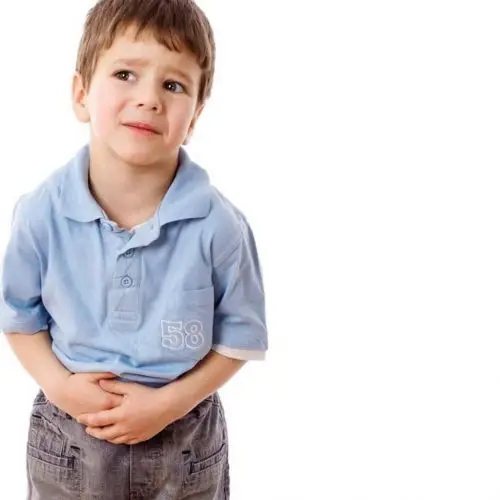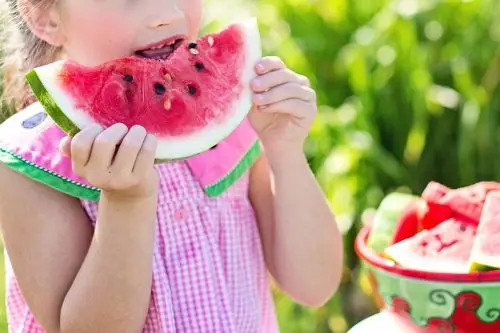What is the Ayurvedic Viewpoint on Children’s Health?
Children are prone to a range of troubling symptoms and ailments, starting from infancy all the way up to their pre-teens. Ayurveda has a clear explanation for why this happens.
To understand the Ayurvedic viewpoint, however, an understanding of the doshas (body types) is needed.

Doshas embody different combinations of the five elements: air, ether, fire, water and earth. Each of us contain all doshas to varying degrees, with one or two usually more prominent. An excess in any dosha usually leads to imbalances and disease.
Doshas will increase and decease according to age. When it comes to children aged 1 to 12 that are at in the developmental stages, Kapha (the water element) is often the most prevalent. However, this dosha is prone to imbalance and aggravation, which leads to an excess in mucus in the system (this is why we consistently see children with runny noses). Mucus is necessary for the child’s development, which is why it is plentiful in their systems, but it may be problematic if in excess.
Other doshas might also be affected, like Pitta (fire) and Vata (air), and this is what Ayurveda is keen to investigate prior to prescribing any kind of treatment.
Common Ailments and Symptoms
Kapha Aggravation
Kapha, the water element, is pivotal for children’s development as it governs growth, lubrication, and fluid balance. Kapha also empowers memory, stability, and compassion. But Kapha that is produced in excess can clog up your child’s system with waste (ama). This mucus substance gets trapped in the cells, lymph nodes, and bone marrow, thus compromising the immune system and other bodily functions.
The following symptoms reveal such a Kapha aggravation in the child’s system:
- Runny nose
- Nasal congestion
- Sneezing
- Coughing (productive)
- Asthma and/or hay fever
- Salivary gland congestion
- Enlarged adenoids
- Bacterial infections
- Bloating with or without weight gain
- Over-sweating
- Hypersalivation (drooling)
- Sticky or watery stool
- Oversleeping, lethargy
- Slow movements, heaviness, lack of motivation
Pitta Aggravation
Pitta, the fire element, is responsible for your child’s ability to digest, absorb and assimilate food and nutrients. It is also the source of their enthusiasm, charisma, and physical energy. Excess Pitta, however, can result in the following symptoms:

- Digestive problems, like tummy aches and colic
- Diarrhea and loose stools
- Fever (though the root cause will need to identified)
- Skin rash (eczema)
- Urticaria (hives)
- Inflamed tonsils
- Sore throat
- Ear infections
- Eye infections (part. Inflamed, bloodshot eyes)
- Measles
- Chickenpox
- Irritability, anger and tantrums
- Lack of enthusiasm or interest
Vata Aggravation
Vata, the air element, is the force that fuels movement, nervous impulse, and creativity. It is also responsible for your child’s optimal breathing and heart rate, as well as their sensory perception and communication skills. But an excess in Vata is known to produce symptoms such as:

- Head cold (as cold isn’t easily tolerated)
- Aching joints
- Dry skin which is overly sensitive
- Insomnia and sleeping disturbances
- Irregular appetite
- Being overly thin
- Cough (dry)
- Constipation
- Mental and physical restlessness (hyperactivity)
- Worry and/or anxiety
It is not unlikely for your child to develop symptoms of more than one aggravated dosha. As children change with age, one dosha can be more imbalanced than the other at any given time – even multiple doshas can be affected at the same time.
How Can Ayurveda Help Your Child?
Ayurveda can help balance your child’s dosha levels and relieve them of any associated symptoms and discomforts. This will be done according to a customised treatment plan that will take your child’s dosha, developmental stage, and delicate system into account.
- For children suffering from a Kapha aggravation, the Ayurvedic practitioner will prescribe all-natural nasal rinses and Kapha-balancing herbal medicine. Certain Kapha-aggravating eating habits, like excess dairy, will need to minimised, while an abundance of fruits, green and bitter vegetables, grains and legumes will be recommended as part of the new diet. For breastfeeding mothers, dietary recommendations may also be given.

- For children with symptoms of Pitta aggravation, Pitta-aggravating foods will need to be eliminated from the child’s diet and substituted with Pitta-decreasing foods, like milk, ghee, nuts, yogurt and sweet fruit. Herbal medicine will also be prescribed, particularly if digestion is compromised. Natural Ayurvedic oils and ointments might also be given for children with eczema and skin inflammation.
- Lastly, children experiencing Vata aggravation symptoms will follow a similar treatment plan that includes dietary recommendations (particularly including liquids) and herbal medicine to stimulate the appetite and pacify the excessive air within the system. Natural, child-friendly oils may also be prescribed if the child’s skin is excessively dry, sensitive and dehydrated.
How is Ayurveda Different to Western Medicine?
Ayurveda is a fundamentally holistic, personalised, and preventative approach. It is also 100% natural and side-effect free, so you, as a parent or caretaker, can rest assured that your child is being prescribed the safest form of medicine.
Unlike Western Medicine that prescribes a “one-fits-all” treatment, Ayurveda treats the patient as a unique individual and constitution thanks to its dosha philosophy.

Ayurveda also has the added benefit that a single treatment can revitalise the entire system. For instance, if your child is troubled by chronic sinusitis and congestion, the Ayurvedic treatment prescribed may not only help rid the excess mucus, but also stimulate digestion, boost physical energy, encourage cell production, and optimise organ function. What greater joy is there than to see your child healthy and happy?
In my clinic I have found that the Ayurvedic system has been very helpful in the management of common childhood ailments, for example – colic, bed wetting, jaundice, anemia, constipation, diarrhea, eczema, dry skin, adenoid problems, blocked nose, anxiety, mental stress, sleep disturbance, hyperactivity and loss of appetite.
Please view our ailments glossary for more information.
Articles
- Childhood Stress Management / Depression and Anxiety Disorders in Children Symptoms
- Children Bed Wetting at age 6 | Adults Wetting the Bed Treatment
- What is Colic in babies? Symptoms and Treatment
- Signs of Tooth Decay In Children Treatment
- Blocked Ear Pain | Middle or Inner Ear Infection Treatment
- What Causes Eczema Symptoms? | Eczema in babies | Eczema Rash Treatment & Diet
- Tonsils and Adenoids (Sore Throat pain) Treatment
- Constipation Symptoms (Causes) Treatment Relief
- Anorexia Symptoms (Lack) Loss Of Appetite Causes Treatment
